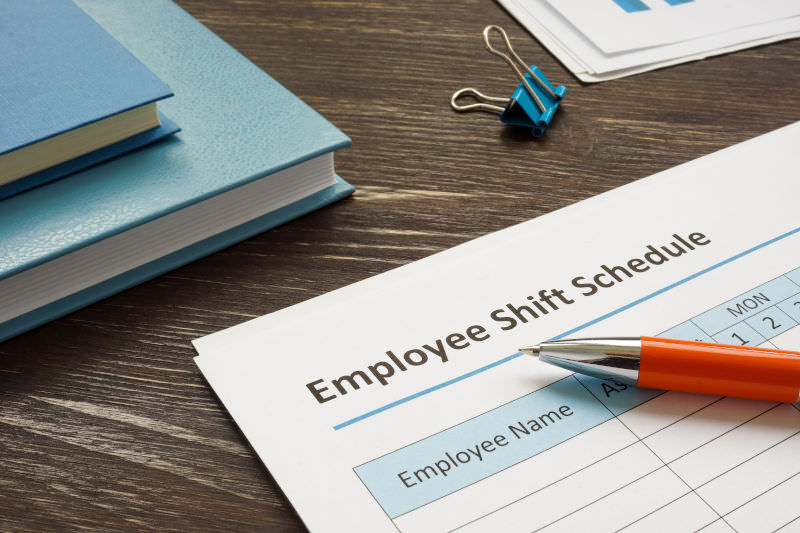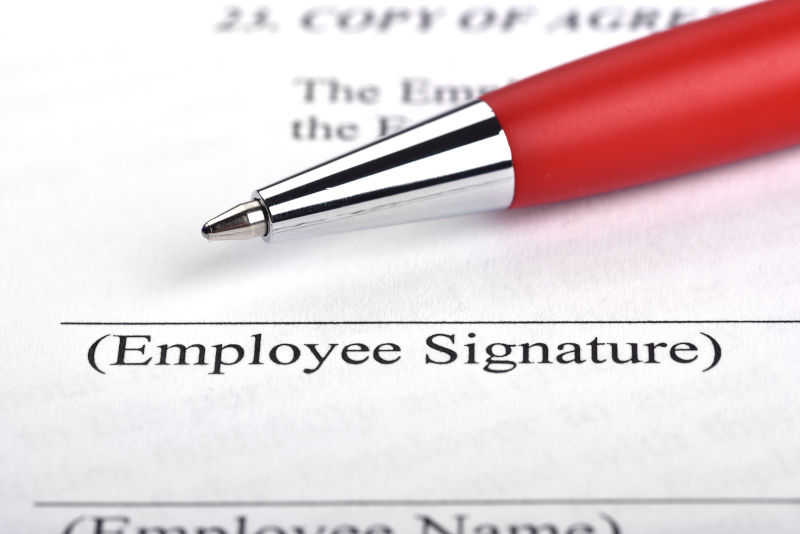We often take it for granted that we have the right to a lunch break or a couple of days off each week. But, as with most things legal, the reality is more complicated than that!
So how can you find out what your rights are on working hours and taking breaks? And what can you do if your boss is not following the rules?
In this article, we answer some common questions on working hours and break entitlements – and see what the Working Time Regulations (the law which sets out limits on how long we can be expected to work) has to say.
We’ll look at what adults and young workers are entitled to in:
- Rest breaks
- Rest entitlements per day (also covering night shifts)
- Rest entitlements per week
- Limits to working hours
Where to find your rights
As mentioned above, the main legal source for your rights on working hours and breaks is the Working Time Regulations. We’ll be covering a lot of what this says below. But there are other things which can affect the rights that apply specifically to you and your job. The main ones are:
- Your contract of employment – if you are an employee, you should have received a copy of your contract of employment when you started. It contains the legal terms of your employment as agreed by you and your employer. If you are not an employee, you will not have a contract of employment, but may have some other contract in place. See the section ‘Does any of this apply if I’m not an employee?’ below for more information.
- Any collective agreements or workforce agreements which apply to you. Trade unions or staff associations can agree additional terms with an employer through collective agreements or workforce agreements. These can often cover working hours and break entitlements, so it is important to find out if any of these have been made with your employer and establish whether they will affect your rights in this way.
- The employee handbook – this may contain some relevant information on your breaks and working hours – and might be easier to digest than your contract of employment. But if you are in any doubt, it is always best to go with the terms as written they are written in your contract of employment itself.
Rest Breaks (adults)
A friend has asked me to work for him in his new record shop. I will be the only one there. He wants the shop to be open all day (between 9am and 5pm). Shouldn’t I get a break?
Yes, you should!
But it might not be as long as you think.
Unless your employer has agreed that you should have a longer break, you are entitled to a 20-minute unpaid break if you work for over 6 hours.
I thought I was entitled to an hour’s lunch break but I only get half an hour. Is this allowed?
This will depend on why you thought you were entitled to an hour’s lunch break.
If you have a contract of employment (described above) that says you are entitled to an hour’s break, then your employer should allow you this to comply with the contract’s terms.
If you don’t have a contract of employment, or you do but it doesn’t say what breaks you are allowed, you will only be entitled to a 20-minute break if you work more than 6 hours (under the Working Time Regulations).
In some situations, you may have agreed to change your entitlement with your employer. If so, you should make sure that this agreement is in writing. Strictly speaking, it does not have to be in writing to be valid but, if it isn’t, it will be hard to prove (for both you and your employer) exactly what has been agreed.
I have to take my break after 2pm as lunchtime is our busiest time at work. I’m so hungry by then. Don’t I have a right to a break over lunch if I am working all day?
No. You would only have a right to take a break at a certain time if your contract of employment stated this.
The law only says you have a right to a 20-minute break if you work more than 6 hours. It does not say when the break must be given. As such, your employer is allowed to ask you to take your break at this time.
That said, your employer is under a duty to protect your health and safety. If preventing you from eating anything before 2pm is causing you problems with your health – such as making a medical condition worse or putting you at risk – then your employer should take steps to help you. This might also be the case if you are breastfeeding.
In addition, if you need to eat as a result of a disability (such as diabetes), your employer is under a duty to make reasonable adjustments. In this situation, reasonable adjustments might include letting you have your break before the busy period or allowing you to split your break so that you can spend a few minutes having a snack during the busy period.
I work between 10am and 4pm 3 days a week. I don’t get a break. Can I ask for one?
As you work for 6 hours, and not more than 6 hours, you are not entitled to a break under the Working Time Regulations.
That does not mean you cannot ask for one though if the lack of a break is causing you problems. It might be possible to agree with your manager that you start at 9.30am or finish at 4.30pm so that you can have a 30 minute break during the day, or your manager might be happy to agree to you having a 10 minute break half way through the day.
As above, if you have a medical condition or a disability and the lack of a break is causing health problems, your employer is under a duty to take reasonable steps to accommodate you.
I work 9am to 3.30pm and get a 20-minute break which I can take when I like. Can I take it at the end of the day and leave at 3.10pm so I am home earlier?
As touched on above, you do not have any legal right to choose when your break is taken.
The right to a break itself was brought in to protect the health and safety of workers. Taking the break at the end of the day (or the start) doesn’t serve to divide a lengthy period of work and so doesn’t fulfil that purpose. For this reason (and probably a few others!) it’s unlikely an employer would allow this.
My manager says I have to take my break at my desk in case the phone rings. I want to go out. Can I?
The right to a 20-minute break is a right to have a 20-minute uninterrupted break away from your workstation.
As such, you should be allowed to leave your desk or where you work. You should speak to your manager about this and raise a grievance (a formal complaint) if nothing changes. You can read more about grievances here.
I work as a nurse and can’t always take my break if there is a patient needing urgent help. Can I take it later on in my shift?
Where the work you do needs continuity of service or production – i.e. the activities need to be done without interruption, such as the treatment and care given in hospitals – and you cannot take your break, you should be allowed to take it at another time when you would otherwise be working.
The Working Time Regulations recognise situations like this and state that an employer shall, wherever possible, allow an equivalent period of ‘compensatory rest’ to be taken later, during working hours. In the exceptional cases where this isn’t possible, your employer must arrange other protections to safeguard your health and safety.
Other examples where continuity of service or production might be needed are:
- Work at docks or airports;
- Press, radio, television and cinema production;
- Gas, water and electricity production; and
- Agriculture/farming.
I’m a security guard. I need to monitor CCTV footage all the time. Should I get a break?
The Working Time Regulations also recognise situations with workers who are engaged in security activities – which require them to be there all the time.
In a similar way to the previous answer, if you are in this position, you should still be given a break at another time where that is possible. If not, your employer needs to take other steps to make sure your health and safety is protected.
Daily rest (adults)
Is there a limit to how much I can work each day?
Yes. You should get 11 hours consecutive rest each day. This means your working day should not be more than 13 hours long in each 24-hour period that you are working for your employer.
I work night shifts, is there a limit to the hours I can work?
The Working Time Regulations class someone as a night worker if they work at least 3 hours during night-time.
It also defines night-time as being between the hours of 11pm and 6am, unless there is a written agreement with your employer for a different period of time to be classed as night-time. If there is, this period must include the hours from midnight to 5am and be at least 7 hours long.
If you fall into these definitions as a night worker, you should only work, on average, for 8 hours in a 24-hour period.
My boss wants me to work overtime to catch up on orders. I currently work 12-hour shifts. He wants me to work another 2 hours each day for a week. Can I refuse?
The same exceptions that apply for rest breaks, apply for daily rest (see the answers above regarding nurses and security guards). In other words, the 11 consecutive hours of rest in each 24-hour period can be departed from if the nature of the job requires it, and equivalent rest is given later.
But the situation described here involves extra work, rather than an employer needing you to work through what should be a rest period.
As such, unless there is collective agreement or workforce agreement (described above) that changes the legal rule and allows you to work more than 13 hours a day, you would not be obliged to do the extra work. And even if there is any such agreement, you should still be given the equivalent rest, to be taken at another time, as compensation for this.
I am going from a late shift on one day (e.g. 3pm to 11pm) to the early shift the next (e.g. 7am to 3pm). I won’t get an 11-hour break. Is this allowed?
Yes, this is allowed under the Working Time Regulations so long as you get your rest at another time if this is possible.
Weekly rest (adults)
I am starting a new job and they want me to work 6 days a week. Am I not entitled to 2 days off?
It’s common for full-time workers to have 2 days off each week but the law states that you only have the right to one day off (24 hours) in a 7-day period (or two days off (48 hours) in a 14-day period).
I have to work nearly 2 weeks before I get a day off. Is this allowed?
You should check your contract of employment to see what it says about your working days. If it says you should get more time off than this, then you should point this out to your employer.
If you don’t have a contract that says you should have more time off, then you should have at least one day off (24 hours) in a 7-day period or 2 days off (48 hours) in any 14-day period.
Working week (adults)
I need some extra money and overtime is on offer. How many hours can I work?
The Working Time Regulations say a worker should not work more than 48 hours a week. This is averaged out over a 17-week period (or however long you have been employed if you haven’t been employed for 17 weeks). An agreement with a trade union can increase the period over which your working hours have to be averaged to up to 52 weeks.
That said, you can “opt out” of this maximum working week in writing. This would allow you to work as many hours as you wish.
But you will always have the right to opt back in. To opt back into the maximum working week you would need to give notice that you want the opt-out to end. If the opt-out does not say how much notice you have to give to end it, you will have to give 7 days’ notice. But an opt-out is allowed to state that you have to give up to 3 months’ notice.
So, if you want to work more than 48 hours and have signed an opt-out, you can do so. If not, your employer is likely to want you to sign one.
I signed an opt-out so that I could work more than 48 hours a week. I’m finding it too much now. What can I do?
You can opt back into the maximum working week by giving your employer notice.
As above, if the opt-out does not say how much notice you should give, you will have to give 7 days’ notice.
If the opt-out says how much notice you need to give, you will have to give that notice (unless your employer agrees otherwise). But your employer cannot require you to give more than 3 months’ notice.
You also need to remember that the 48-hour week is an average working week so in some weeks during the 17-week period you might have to work more than this but in others less.
If you want to change your hours see Can I change my working hours?
Does any of this apply if I’m not an employee?
Even though ‘employers’ and ‘contracts of employment’ are mentioned throughout this article, you don’t have to be an employee (in the legal sense) to benefit from the protections in the Working Time Regulations.
Workers who provide work under other contracts (whether express or implied) that aren’t contracts of employment can also have the same rights to rest breaks and working hours.
However, the Working Time Regulations will not apply if you are self-employed – for example, if the person or company to whom you are providing work is a customer or client.
Working out your employment status can sometimes be tricky. Our article on rights and employment status can tell you more. Or you can get in contact with us if you would like advice on your situation.
Young Workers
My child is 16. Are their rights to rest and breaks any different?
Yes, there are different rules for young workers i.e. young people who are 15 or over but under 18.
A young worker should not work more than 8 hours a day or 40 hours a week.
They should also have at least 12 hours consecutive rest in a 24-hour period and a rest break of at least 30 minutes if they are working for more than 4.5 hours per day.
Additionally, young workers are entitled to at least 48 hours (2 days) off in a 7-day period – subject to some exceptions in the Working Time Regulations.
Can young workers work night shifts?
Young workers are not allowed to work in a ‘restricted period’ under the Working Time Regulations. This period runs from 10pm to 6am, though the employment contract can allow for work after 10pm, in which case, it will run from 11pm to 7am.
Holidays
How much holiday should I get?
See our legal guide: Everything You Need to Know About Holidays and Holiday Pay, for help on this.
Claims
If you are not given the right amount of rest, you should talk to your employer, explaining what your rights are. If the matter is not sorted out, you should raise a grievance (a formal complaint).
If the situation does not improve, you can bring a claim in the employment tribunal for a declaration (the tribunal making a statement as to what your legal rights are) and compensation. You should bring your claim within 3 months (subject to ACAS Early Conciliation).
Contact us
With an honest and ethical approach to law, Truth Legal’s specialist team of employment lawyers can help you with all your employment law matters. Our Head of Employment Law is Navya Shekhar, an employment law solicitor with over 10 years’ experience.
If you believe that you are not being given the right amount of rest or being asked to work for too long – call us on 01423 788538 or contact us here.
Further Reading
From one of the UK’s most read legal blogs.










